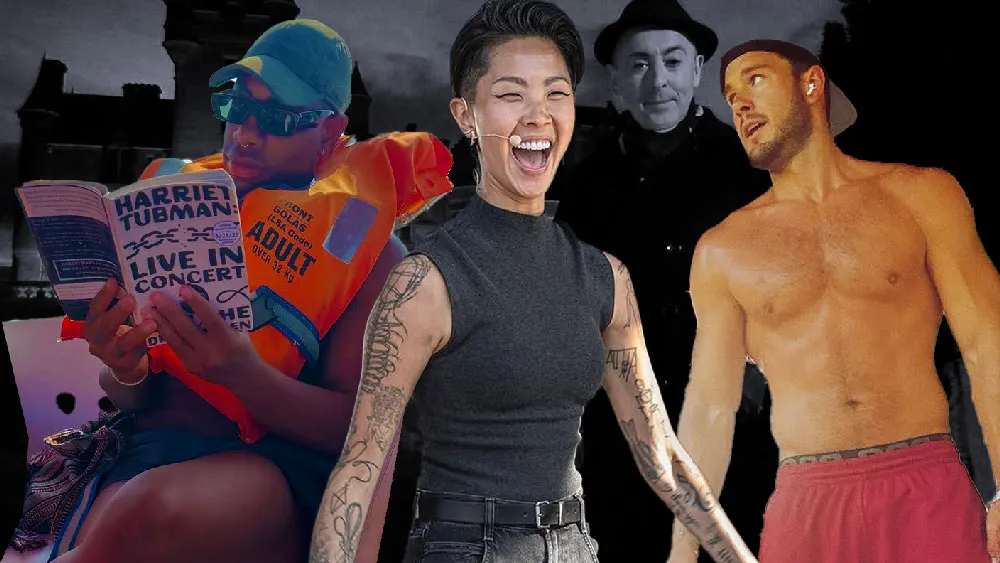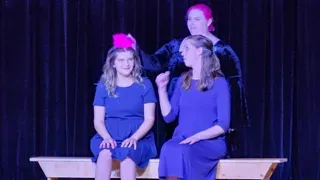April 7, 2020
Mondegreens
Kevin Schattenkirk READ TIME: 4 MIN.
We've all had instances when we mishear a line in a song. Those instances are technically called mondegreens. Take Madonna's "Ray of Light": Instead of the song's actual chorus lyric "and I feel like I just got home," has anyone else misheard the line as "and I feel like a disco ball"? Or in Jimi Hendrix's classic "Purple Haze," one might mishear the song's signature line "'scuse me while I kiss the sky" as "'scuse me while I kiss this guy." In some cases, the mondegreen might even be intentional. In his song "I Can't Read," David Bowie sings "I can't read shit anymore." But without having his lyrics readily available, it actually sounds as if Bowie is singing "I can't reach it anymore" – and this mishearing more poignantly gives voice to the unfortunate character in the song. Whether it's the flow of the words chosen by the lyricist, a lack of good enunciation and diction on the part of the singer, or even where the vocal tracks sit in a recording's mix that causes such misinterpretations, the impact of mondegreens on intended versus perceived meaning is subjective: Read the lyrics for "Ray of Light" or "Purple Haze," substitute the misheard lyrics where appropriate, and re-interpret for yourself. (If anything, to this author's ears, the mondegreen lends "Purple Haze" a much more queer reading.)
For her latest album (and sixth overall) – titled "Mondegreens" – singer/songwriter Rachel Garlin uses this phenomenon as a general metaphor for examining what gives meaning to our lives. The title track explores this theme most directly: "Sometimes life is funny, it's not what it seems, and when the words cannot be made out you make up your mondegreens." And even if we go through our lives singing the "wrong words," Garlin suggests that "maybe the wrong words, the wrong turns, the wrong way leads to the light."
A trio of songs examines interpersonal relationships. "Capture Me," the lilting opener and album highlight, negotiates autonomy and independence within the bounds of couple-hood: "I belong with you and you belong with me... I know you don't belong to me." Acoustic guitar-centered "Out There" acknowledges the paradoxes of life ("the world is kind and cruel") while encouraging a daughter to "go out beyond the ledge, you clever girl; fledglings have the edge in a bitter world; you'll become a swallow beyond the waiting wild; my daughter you can fly; there's nothing wrong with what you were given, good bones and a heart that's driven; so live your life out there." And the joyful "Good Morning" features banjo, mandolin, and violin augmenting Garlin's acoustic guitar. In acknowledging our the consequences of our neglect ("it's not about regretting, but wasted time") we can recommit to building stronger relationships with loved ones ("'cause it's a morning and we're searching, we're sifting through our past; it's not doomsday, not the worst day, but it's time to raise a glass to say 'I toast this time with you,' three cheers to say I do, see the reasons why we need some room to grow").
Another trio of songs speaks to life experiences impacted by the socio-political realm. The tender folk ballad "Radio Silence" sways gently like a lullaby, with a circular melody and harmonic progression, as Garlin intones about the dashed hopes and expectations of a reality we cannot control. Sometimes, it's OK to disappear for a while and regroup before emerging back into the world. "Dry Creek River," a slow waltz with acoustic guitar, accordion, and melodica, marvels at resilience and growth in desolate conditions: "You don't know the reasons why a person turns out to manifest a handsome nest in the middle of a drought; but every dry land farmer knows the vines will overflow, deep inside a fractured field the finest grapes still grow." Album closer "Higher Ground," a country-inflected ballad, cautions about imminent danger and urges us to be aware and vigilant. Garlin doesn't speak here in specific terms. That the song is relevant to COVID-19 life is pure coincidence. But songs like these are borne of tumultuous conditions that find most artists with no choice but to yield to greater understanding.
Rounding out the album, the major-key, country-ish "Cheers to You" moves on a mid-tempo groove, where "Earthquake Town" picks up the tempo a bit while throwing some mandolin into the mix (this beautiful 8-stringed instrument makes several appearances throughout the album). And then there's a cover of Don Henley's "Boys of Summer," a top-5 hit single in 1984. Here, however, Garlin reinvents the song with a sparse acoustic arrangement highlighting the poignancy and romantic yearning of the song's lyrics.
With regard to style, there are traces of Edie Brickell and Suzanne Vega in Garlin's breathy and soothing vocal delivery. Musically, Garlin's work shares a similar folk-based aesthetic with Portland-based singer/songwriter Laura Veirs, especially in the way both artists frame melodic material with finger-picked acoustic guitar, left-of-center harmony vocals, and the occasional well-placed and evocative violin (or other solo instruments such as the melodica in "Dry Creek River").
What is most impressive about "Mondegreens" is its compassion, empathy, and willingness to connect. In just under 40 minutes, Garlin gets to the heart of some of the most pressing and common feelings that result from contemporary socio-political life in America. To whatever extent we interpret Garlin's songs as reflections of our own lives is subjective: The ways in which we relate to their sentiments through the lens of our own experiences, in essence, become our own sort of mondegreens.
Rachel Garlin
Mondegreens
$9.90 (digital download)
Rachel Garlin official website
Kevin Schattenkirk is an ethnomusicologist and pop music aficionado.







